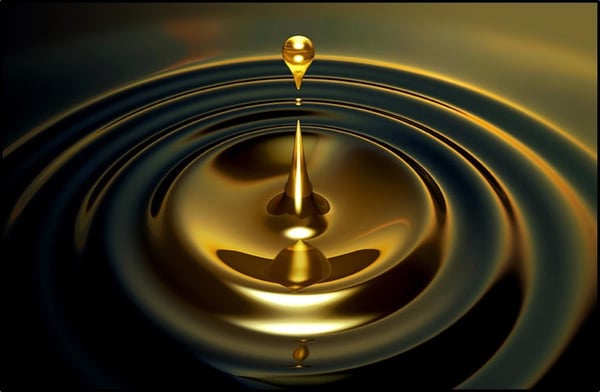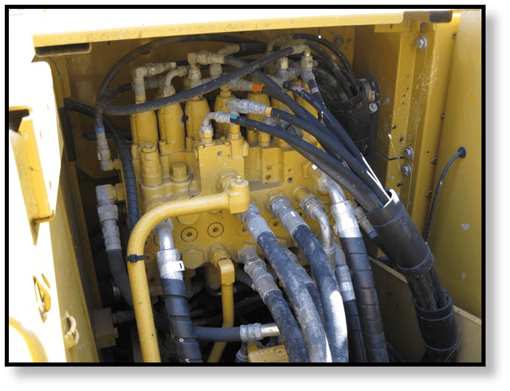
Hydraulic fluid performs many jobs for your final drive, including lubricating moving parts and protecting parts from corrosion, rust, and oxidation. Anything that hinders the ability of your hydraulic fluid to do its job will turn into a big problem for your final drive later on. This Shop Talk Blog post will focus on hydraulic fluid issues that can impact your machine' final drives.
Hydraulic Fluid and Aging
Did you know that hydraulic fluid can wear out? It doesn’t wear out in the same sense that a seal or a bearing wears out, but it does age and eventually lose its ability to perform the tasks we listed earlier. Hydraulic fluids have special chemical additives in them that improve their natural properties. These additives eventually lose their effectiveness, which reduces the effectiveness of the hydraulic fluid. This will eventually affect the performance of your machine. Hydraulic fluid may not expire like milk, but it will degrade over time even when your machine's not running. That’s why some experts recommend you only buy as much hydraulic fluid as you need rather than stockpiling it.
Another way that hydraulic fluid can “wear out” involves it becoming dirty or contaminated over time. No matter how clean you run your system, you are still going to have issues with hydraulic contamination. If your hydraulic components stick when you are operating them or if cycle times on your machine are getting longer, that’s usually a sign that you need to change out your hydraulic fluid. Keep in mind that dirty hydraulic fluid can damage your final drive, too. Your machine’s manual will provide guidelines on when to change out your hydraulic fluid and when to flush the system.

Water and Air Contamination
Hydraulic fluid looks milky when it has been contaminated with water. Water in your hydraulic fluid is bad for four main reasons:
- It impairs the ability of the fluid to act as a lubricant
- It can hinder corrosion and rust protection
- It can lead to cavitation
- It can clog filters
Fortunately there are steps you can take if your hydraulic fluid has become contaminated with water.
Hydraulic fluid looks foamy when it has been contaminated with air. Hydraulic fluid that has air in it is going to be more elastic -- and hydraulics depends on the fact that fluids can’t really be compressed. If your hydraulic fluid has air in it, then your machine won’t perform as well. This can also lead to cavitation. As with water contamination, there are things you can do if your hydraulic fluid has become contaminated with air.
Hydraulic Fluid and Cavitation
We’ve mentioned cavitation as one of the side effects of both air and water contamination. Cavitation happens when there is a rapid change in fluid pressure and cavities (think bubbles) form in the fluid. As these bubbles collapse, the result is a tiny shock wave. Enough of these tiny shock waves over time will cause the nearby metal parts to suffer damage. On top of that, cavitation can cause your equipment to run more noisily, usually with a loud knocking sound.
Conclusion
Hydraulic fluid is the the lifeblood of your hydraulic equipment -- including your final drive motors and pumps. Make sure you take good care of your hydraulic fluid by protecting it from air and water contamination and changing it when it gets degraded or dirty.
Texas Final Drive is your partner in providing new or remanufactured final drive hydraulic motors from a single mini-excavator to a fleet of heavy equipment. Call today so we can find the right final drive or hydraulic component for you, or check out our online store to find your O.E.M. manufacturer brand motor now.

